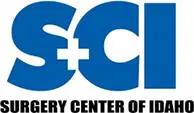Advanced Prostate Cancer in The Treasure Valley
What is Advanced Prostate Cancer?
Most prostate cancers are slow growing. However, prostate cancer may progress during the course of the illness. When the prostate-specific antigen (PSA) begins to rise in the months or years after treatment for localized prostate cancer, it means cancer cells still remain in the body and there is recurrence of the disease. This is called advanced prostate cancer.
Although advanced prostate cancer is generally not curable, there are a variety of treatments that can control the cancer, reduce symptoms, improve and maintain quality of life, and extend survival.
Advanced Prostate Cancer Clinic
The first of its kind in the Treasure Valley, the Advanced Prostate Cancer Clinic (APCC) is dedicated solely to men with advanced prostate cancer and their specific healthcare needs. IUI has established a specialized team to provide personalized cancer care, all under one roof, while providing support for the patient and their family from the time of diagnosis through treatment and follow up.
APCC Healthcare Team
The APCC is led by Todd Waldmann, MD and Hasan Dani, MD, the primary urology specialists for ongoing care in the treatment of advanced prostate cancer. They are assisted by a nurse navigator.
APCC Program Design
When you are diagnosed as having advanced prostate cancer, your primary urologist will refer you to the APCC.
You will then be scheduled for a consultation with Dr. Waldmann. The doctor will review your health history and discuss the status of your prostate cancer as well as discuss various treatment options. Additional testing may be needed to determine your specific treatment options.
Together with your APCC physician, a treatment plan will be chosen. Follow up visits will take place as needed based on your individualized treatment regimen.
The nurse navigator will be your primary point of contact. They are available to answer questions, provide support, and to communicate with your medical team to coordinate your care. In addition, they can help connect you to other services as needed.
HIFU Treatment in The Treasure Valley
What Is High-Intensity Focused Ultrasound (HIFU)?
HIFU technology ablates prostate tissue by focusing high-intensity ultrasound waves on the affected area, causing localized heating that destroys the cells in the gland without damaging the healthy surrounding tissue. Focused ultrasound works in the same way as rays of sunlight that pass through a magnifying glass and are concentrated at a single point, equally causing a significant temperature to rise around the focal point.
Idaho Urologic Institute is committed to providing cutting-edge prostate cancer treatments, including HIFU, to patients in Treasure Valley. This non-invasive procedure offers precise cancer treatment with minimal impact on surrounding healthy tissue, reducing the risk of side effects. Call (208) 639-4900 today to schedule a consultation and explore whether HIFU is the right option for you.
Advantages Of HIFU Treatments
HIFU is the ideal treatment tool to ablate just the diseased part of the prostate for the optimal preservation of quality of life. HIFU is the latest treatment option using focal therapy to treat prostate cancer. The real-time imaging allows for precise local ablation in one session under general anesthesia, repeatable, if necessary, with a low risk of side effects.
– Non-invasive Procedure with no blade, no scar, no radiation, or incision
– Low Risk of Side Effects such as incontinence and erectile dysfunction
– Quality of Life Preservation with minimal time away from work and leisure activities
Treatment options include:
- Surgery
- Hormone therapy
- Immunotherapy / Provenge
- Oral medications
- Radiation therapy / SpaceOAR
- Chemotherapy
- Radiopharmaceuticals





